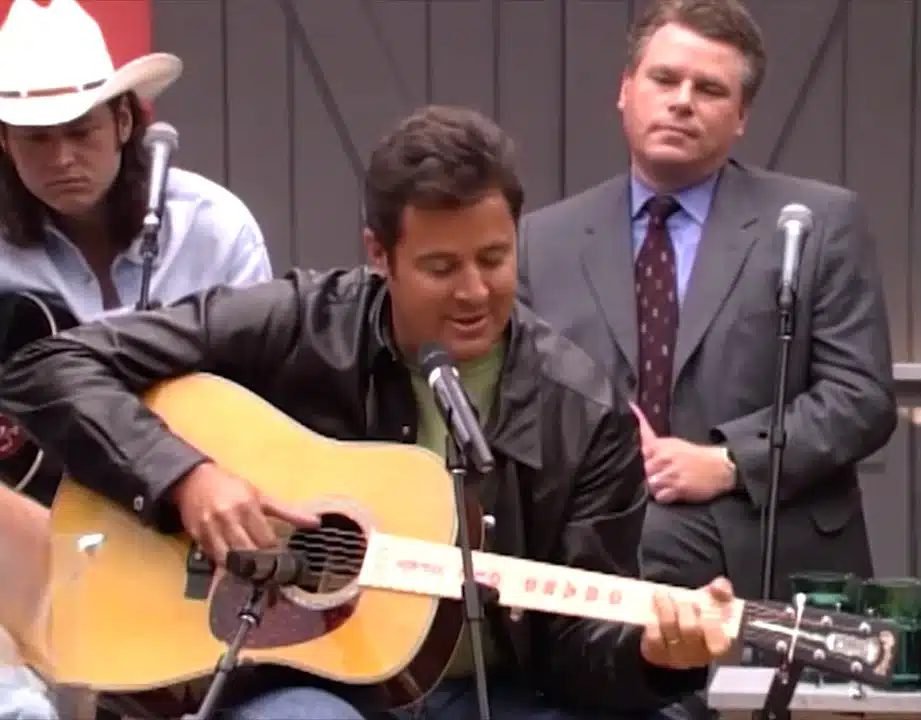Vince Gill Honors His Father’s Legacy in Emotional Ballad “The Key to Life”
In his deeply personal track The Key to Life, Vince Gill pays tribute to his late father, Stan Gill—a banjo-playing lawyer whose love for music left a lasting mark on Vince’s life. Released in 1998 as the closing song on his album The Key, the ballad reflects on the foundational role his father played in shaping his musical journey.
It all began with three simple chords—G, C, and D—that Stan taught Vince on the banjo. Those basic notes became what Vince lovingly calls his “key to life.” The lyrics take listeners through cherished childhood memories of his father strumming classics like John Henry, Ol’ Shep, and Faded Love. Though Stan was no virtuoso, young Vince saw magic in his playing, recalling, “But in the eyes of a child, man, his fingers flew.”
The song also traces Vince’s path from small-town bars to the prestigious Grand Ole Opry, guided by his father’s wisdom to always stay humble. Stan’s words—“It’s all for nothin’ if you don’t stay the same”—echo through the song as a grounding reminder of character and humility.
More than just music, Stan taught Vince the value of using his gifts to connect with others and never lose touch with where he came from.
As the song comes to a close, Vince reflects on the deep pain of losing his father, comparing it to the sting of a Randall knife. Yet, he finds comfort in the foundation Stan gave him—one built on love, music, and authenticity.
With The Key to Life, Vince Gill beautifully honors his father’s memory, showing how even the simplest of beginnings can lead to a life filled with meaning, melody, and purpose.
